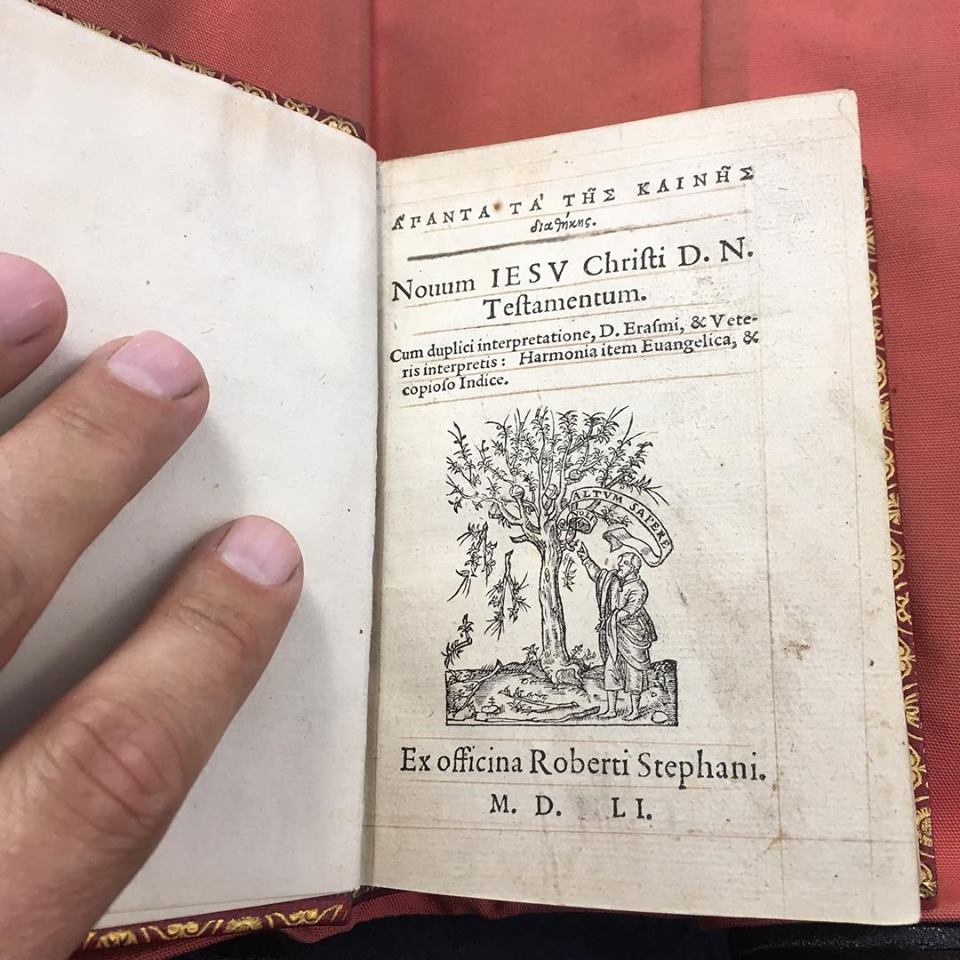 Where do you run to?
Where do you run to?
So you are a Christian and you messed up. You know it. No one can excuse what you did, least of all you. Your conscience (while not always a 100% reliable source as it has to be trained by the word of God) accuses you. You sinned! You did it – and you know you should not have done it. Nothing can change this reality.
The hard facts mean that you are now disillusioned about your Christian life. You can feel the dark and dismal clouds of depression forming overhead. You feel like you will never see the warmth and comfort of the sunlight again.
You have confessed your sin to God (and perhaps even to those you sinned against) but you just don’t feel like you are forgiven.
So, the question is “what are you going to do now this has happened?”
You don’t want logic or reason right now – you want to lay down in the stench of your sin and mull it over for a while.. an hour or two, a day or two.. a month or two… why? Because this is just too much this time. You went too far – you did it once again – when you swore you would not – and now, not even God wants anything to do with you… you think.
If that is how you feel, allow me to lay out your options.
You can stay in your depression and beat yourself up over and over for the sin you committed. You can listen to the accusations of the enemy that are being whispered – no – more like shouted in your ear. You can do that. Not legitimately of course. But no one can stop you, if that is your choice.
You can think about divine election and wonder if you are among the elect. Your thoughts gravitate to the very unpleasant consideration that you might not be truly one of His. You can dwell on this and by doing so, make your pit that little bit deeper moment by moment, minute by minute. You can set up a bed in the pit, and live the rest of your life there, never to surface again.
Yes, you can do that too.
OR, you can recognize your sin was every bit as bad as the devil and your conscience says it is and you can do something about it.
Confess it to God (if you haven’t already done so) and believe the promises of God.
These promises are not about the greatness of the Christian – that you will be better from now on – or that by certain works, you can earn God’s favor again.
Listen, you never gained God’s favor for even a second by means of something you did. Even the repentance and faith you once expressed were gifts from an all gracious and loving God.
No, the promises of God concern the wonder and worth of the perfect sacrifice of Christ who died in the place of the most guilt filled sinner on earth.
And that – my friend – is your only way out of this pit that has been dug for you.
So – let me spell this out. Boiling it down to two – here are the available options before you.
Option 1: Doubt God’s promises
Option 2: Believe God’s promises
It is really that simple, and that hard!
We could talk for hours and analyze the pit.. in fact, we could have a survey team come in and get accurate measurements of the pit, noting the slime on the sides of the walls and the particular stench of the pit. It is not nice – we get it!
We could note the irritating feeling of abandonment you feel…
Yes, we could do that.
But really, when we have talked the whole thing over together for many hours, the options before you will remain the same.
What is it going to be? Option 1 or Option 2?
Now, if you choose option 1, depression and anxiety will be your future experience. That is what awaits you. There’s no doubt of that. You can count on it.
If you choose option 2, then in spite of the darkness of sin, God’s promise is that though your sins be as red as scarlet they shall be white as snow (Isa. 1:18). That is not just true the first time you come to Christ as your Lord and Savior, but in every coming to Christ – post conversion. Such is the power of the Lord Jesus in His Savior-hood! He is good at saving sinners.
Actually, He is amazing good at this!
His finished and accomplished work is perfect in every respect and every aspect. He lived a sinless life and died an atoning death for sinners. His sacrifice removes sin and His life is imputed to all who believe. The salvation He brings is flawless, enduring, massive, extensive, never fragile, never in question, because He died a fully atoning death for sinners and rose from the dead to prove His atonement actually atoned – actually justified sin filled sinners. He was “delivered over because of our transgressions, and was raised because of our justification” (proving He had justified all who put their trust in Him). (Romans 4:25)
Now if you choose option 2, run to Christ – run as fast as you can… run to His open arms.
Confess your sin and hear the promise of God – “If we confess our sins, He is faithful and righteous to forgive us our sins and to cleanse us from all unrighteousness.” – 1 John 1:9
You have heard this Bible promise a hundred times, perhaps even a thousand times. But may I say this as His under-shepherd to your heart today… believe it, one more time. Believe it right now!
And then – rather than stewing another second in your sin – run to the means of grace – don’t stop along the way.. run to worship on the Lord’s Day, run to prayer, run to the word of God, run to the gathered assembly of the Lord’s people and take your place as a trophy of grace, not because you measure up, but because the Lord Jesus has measured you up – given you a breastplate of righteousness, a helmet of salvation and a shield of faith that quenches all the flaming missiles of the enemy…
You know the whole armor of God (Eph. 6) – you know the complete list of the armor – put every piece on, just like the Bible tells you to.
Get God’s word about your righteousness and salvation and throw off every counter thought… take it captive.. choose to believe what God says rather than your feelings… That is exactly what this armor is for – times like this when you think you are a casualty of war.
 Put on the belt of truth (lay aside the falsehood of the thoughts rattling between your ears)..
Put on the belt of truth (lay aside the falsehood of the thoughts rattling between your ears)..
And while you are doing this, confess that you are sorry for not believing Him, for believing something else.
Oh and one last thing – that’s kind of important… when the enemy hounds you about you not being one of His elect… understand this:
To be His elect is to be His sheep. Right?
And what do sheep do?
Jesus tells us plainly: My sheep hear My voice, and I know them, and they follow Me; and I give eternal life to them, and they will never perish; and no one will snatch them out of My hand. My Father, who has given them to Me, is greater than all; and no one is able to snatch them out of the Father’s hand. I and the Father are one.” – John 10:27-30
The true sheep will listen and heed the Shepherd’s voice.
When He tells you to run to Him and His means of grace… true sheep will stop walking in falsehood, listen to His word and do what He says.
When He tells you to love your spouse (if you are married)… the same applies.
So what are you going to do about this?
If your final answer is to NOT do what the Lord says do… if that is where you stay, in disobedience to God and to His word. Then…
You should be concerned that you are not His sheep. Very concerned in fact!
There is no assurance available to those who disregard the voice of the Shepherd, nor should there be. Relying on a past commitment is not how we know we are His – but by a present day love for Christ and His word (faltering though this may be).
Why?
Because Christ’s sheep, hear His voice and follow Him. The true sheep want Christ, and want to obey Him, and do so.
I hope for your sake that you choose option 2. Confess your sin – run to the means of grace, and as a forgiven sinner, join with the rest of us sinners on the Lord’s Day, taking your place as one who has received something you could never earn or deserve – the mercy and grace of God, and sing of it, sing of Him, worship the Lord, who has done all things well.
Romans 8:33 Who will bring a charge against God’s elect? God is the one who justifies; 34 who is the one who condemns? Christ Jesus is He who died, yes, rather who was raised, who is at the right hand of God, who also intercedes for us. 35 Who will separate us from the love of Christ? Will tribulation, or distress, or persecution, or famine, or nakedness, or peril, or sword? 36 Just as it is written,
“FOR YOUR SAKE WE ARE BEING PUT TO DEATH ALL DAY LONG;
WE WERE CONSIDERED AS SHEEP TO BE SLAUGHTERED.”
37 But in all these things we overwhelmingly conquer through Him who loved us. 38 For I am convinced that neither death, nor life, nor angels, nor principalities, nor things present, nor things to come, nor powers, 39 nor height, nor depth, nor any other created thing, will be able to separate us from the love of God, which is in Christ Jesus our Lord.
Option 1 or option 2? Which is it going to be?
Choose this day whom you will believe and whom you will serve.
 Article: by Clint Humfrey (original source here)
Article: by Clint Humfrey (original source here)






